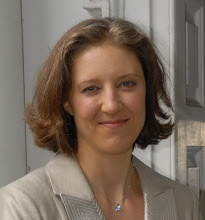Hapkido training as we age.
How old do you feel? I often find that the way people answer this question has a direct correlation to how active they are. The greater the activity level, the greater the difference between reality and fact.
If we look closely at sport, we can find many examples of athletes, supposedly past their prime, still performing at elite levels; Dara Torres and Martina Navratilova immediately come to mind.
Many people stop sport when they leave school/university. The 70year old weighlifter doesn't owe his success to being a worldclass athlete, but rather he is an individual who kept training when others quit.
We can't deny that certain physiological changes do happen as we age: decline in lean body mass, muscle power, skin elasticity and heart rate to name a few. But studies show that the decline is much less than we tend to accept. Simply put, 'if you don't use it - you lose it'.
As we age the rate of regeneration slows so we may not be able to train with the same intensity and at the same frequency of a younger athlete. But by continuing to take part in activities like Hapkido training, we ensure we work on our muscular strength and mobility as well as maintaining all-round fitness. In this way, we will always be younger, in the physiological sense, to our real age.
And before we classify an 'old' athlete as being 'over 40'... I'm told that Jean Borotran and Kitty Godfrey still played tennis into their 90's.
If we look closely at sport, we can find many examples of athletes, supposedly past their prime, still performing at elite levels; Dara Torres and Martina Navratilova immediately come to mind.
Many people stop sport when they leave school/university. The 70year old weighlifter doesn't owe his success to being a worldclass athlete, but rather he is an individual who kept training when others quit.
We can't deny that certain physiological changes do happen as we age: decline in lean body mass, muscle power, skin elasticity and heart rate to name a few. But studies show that the decline is much less than we tend to accept. Simply put, 'if you don't use it - you lose it'.
As we age the rate of regeneration slows so we may not be able to train with the same intensity and at the same frequency of a younger athlete. But by continuing to take part in activities like Hapkido training, we ensure we work on our muscular strength and mobility as well as maintaining all-round fitness. In this way, we will always be younger, in the physiological sense, to our real age.
And before we classify an 'old' athlete as being 'over 40'... I'm told that Jean Borotran and Kitty Godfrey still played tennis into their 90's.


3 Comments:
As I've just returned from the physio with a spring in my step, this is a very timely piece.
I've had niggling knee pain for about 6 years (am now 36), so I've assumed that my "joints are ageing".
After a quick trip to GP and now a good physiotherapist, I've been told that my knees are apparently fine. It was more down to the pressure I've been putting on them due to a faulty technique when I extend my legs in exercise.
So I've now adjusted my sporting timescales - 40 no longer seems like an age when I'm going to have to "ease off". I'd like to be doing my current sports in some shape or form for decades. (Touching wood for no serious injuries in the future).
Some people have the mistaken notion that martial arts is all about kicking each other’s behinds. Truth to tell, martial arts, like the Korean hapkido, teaches overall discipline and mental and physical health.
Sabumnim,
I thought you might find this recent article interesting: http://shine.yahoo.com/event/vitality/98-year-old-woman-becomes-first-woman-ever-to-earn-judos-highest-degree-black-belt-2523297
~ Anatol.
Post a Comment
<< Home